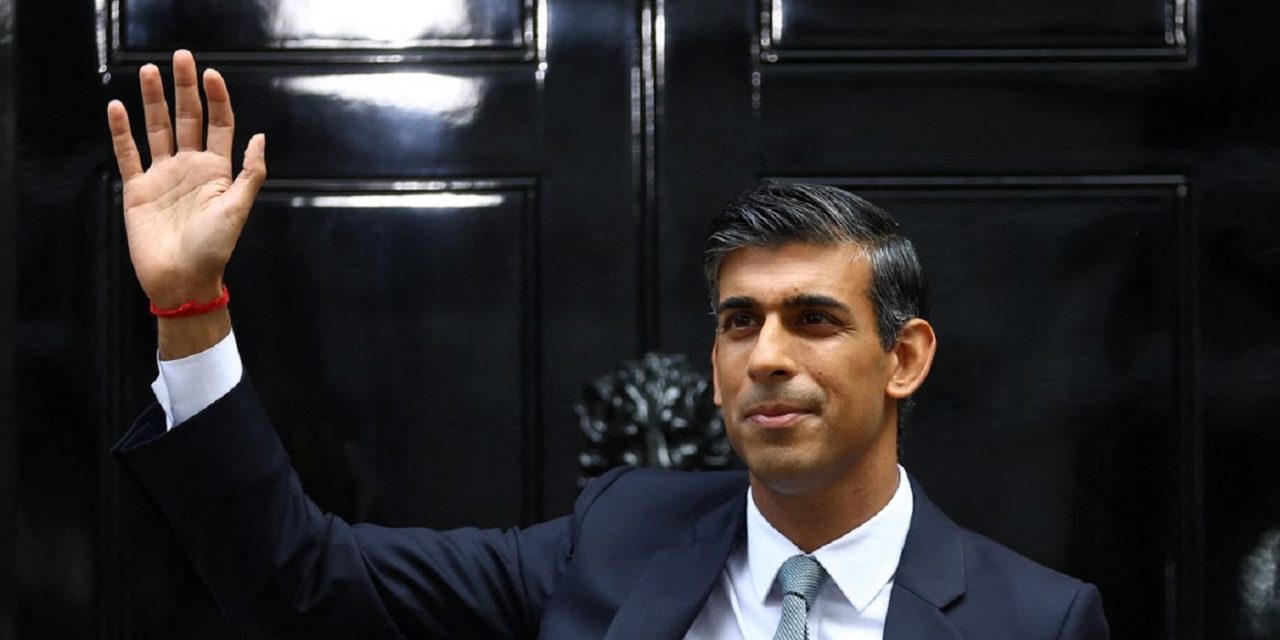With the UK’s economic challenges, a British embassy move from Tel Aviv to Jerusalem might not be top of Rishi Sunak’s in-tray, but with a new Prime Minister now in Number 10, supporters of Israel are keen to see the move forthcoming under his leadership.
During her brief time in office, Liz Truss, who described herself as a “huge Zionist”, made a number of mentions that she was considering relocating the UK’s embassy to Israel – a commitment she gave during her leadership campaign. Hopes that the move will come to fruition seemingly took a set back following her sudden resignation, but questions now surround whether Sunak will continue the pathway that his predecessor began.
Rishi Sunak didn’t make the same promise as Truss during the summer leadership campaign, but he did speak positively about recognising Jerusalem as Israel’s capital when quizzed during a hustings in August.
Speaking at the Conservative Friends of Israel hustings, the then leadership candidate said that Jerusalem is “indisputably the historic capital”, but cautioned that he wasn’t fully aware of all the “sensitivities” as he was not Foreign Secretary.
Lord Eric Pickles asked Rishi Sunak, “Last week at the Westminster synagogue, you said that Jerusalem was unmistakably the capital of Israel, but it wasn’t as easy as that, just to declare it so. Could you take the audience through what are the obstacles to Britain recognising the fact that Jerusalem is Israel’s capital?”
Sunak replied: “To me, it’s indisputably the historic capital. Clearly there’s a very strong case for it to be recognised. The point I was making then, as I would make now, is I’m very open to looking at that, and all I would say is, having not been Foreign Secretary, there must be some sensitivities involved because if it was that easy, it would have been done by now.”
“And before saying, ‘yes, it could be done overnight,’ I would like to get in there and understand the reasons why it’s proved difficult, but prima facie, it seems to me that there is a very strong case to do it, to recognise what is a historic and practical step, for that is what it is.”
“And you talked before about our American allies. Again, this is would be something where we’d be acting in concert with our allies in the region and, in general, one of our closest allies. So it’s something I’d like to do.”
Since CUFI UK began, we’ve been calling for the government to move the British embassy from Tel Aviv to Jerusalem. A CUFI campaign has garnered more than 50,000 signatures.
Ask the PM to move the embassy: Click here to add your name
On Tuesday, Israel extended congratulations to Rishi Sunak upon his appointment. Israel’s ambassador to the UK said, “I send my wholehearted congratulations to Rishi Sunak on his appointment as Prime Minister. I look forward to working together to further strengthen our UK–Israel partnership.”
Israel’s Prime Minister, Yair Lapid, tweeted, “Congratulations Rishi Sunak! Israel and the United Kingdom are close allies. We share not only mutual interests, but an unwavering commitment to democratic values. I look forward to working together to shape a stronger, safer future for both our countries and peoples.”
https://twitter.com/TzipiHotovely/status/1584859524212875265
Congratulations @RishiSunak!
Israel and the United Kingdom are close allies. We share not only mutual interests, but an unwavering commitment to democratic values.
I look forward to working together to shape a stronger, safer future for both our countries and peoples.
🇮🇱 🇬🇧
— יאיר לפיד – Yair Lapid (@yairlapid) October 25, 2022
Sunak has certainly expressed his support for Israel, describing Israel as a “shining beacon of hope”
Sunak called to “put snapback sanctions on the table,” meaning to reinstate all sanctions on Iran, because they are unlikely to return to a nuclear deal with world powers. He also argued that the UK should proscribe Iran’s Islamic Revolutionary Guard Corps.
Sunak pledged that he would be “tougher” in criticizing incitement by the Palestinian Authority.
“It upsets me that there’s an organization which glorifies terrorist attacks on Israel, spreads hate in its schools and we need to call that out and look at what the UN does to support it and make sure that they’re accountable with the funding and the resources that they get and how they’re using it,” he stated.
As under-secretary for local government, Sunak moved in 2018 to reinstate a ban on boycotts of Israel by local councils, after a court upheld the policy following a challenge by pro-Palestinian activists.










